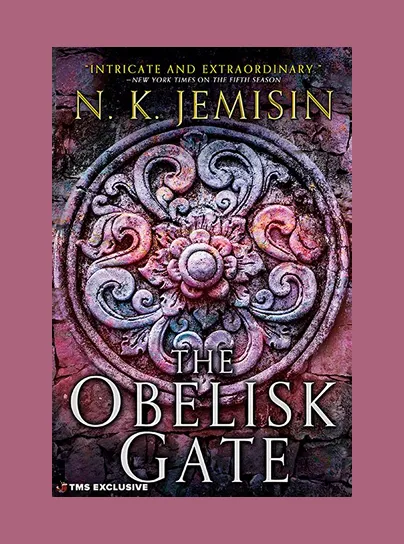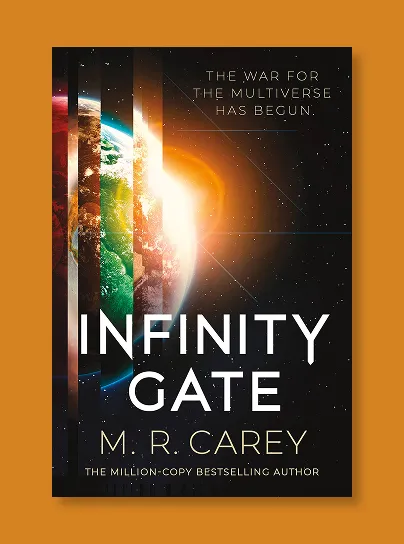
Ancillary Mercy
Book 3 in the Imperial Radch space opera trilogy
Ancillary Mercy is just as massive, tense, and solidly-written as the first two books. I actually read this twice because I was savoring the writing so much - I didn’t want it to end!
Lucky for us, this book doesn’t actually end the story definitively. It leaves the ending open just enough so the author can pick it up again if she chooses to.
Indeed, she wrote two additional books (published in 2017 and 2023) as well as two short stories (published in 2014) that are set in the same fictional universe. I will definitely read all of those.
To the story then.. why is it so good? So many reasons.
Primarily, the writing, which is clean, spare, and precise. The author uses some devices which are extremely effective. The Radchaai fixation with tea and proper tea-serving sets is a low-key way of providing a surprising amount of information - about certain people, Radchaai values, responsibility, and hierarchy.
Then there is the fact that the main character is a collector of songs and is constantly singing. That choice allows possibilities that are delightful. Like, that a select group of her soldiers gets drunk one night singing one of those songs, thereby making it "their song".
And, as previously mentioned (in my reviews of the first two books in this series), Radchaai refer to everyone as "she". That device not only allows a certain part of my brain to relax, it also make us unsure of the actual gender of that character. I love that ambiguity.
Being who she was, she had to know I would oppose her bid to be system governor. I still lived only because Anaander Mianaai, the Lord of the Radch, thought or hoped that I might be a danger to her enemy. But of course, Anaander Mianaai’s enemy was herself. I didn’t care particularly which faction of the Lord of the Radch emerged victorious—they were all, as far as I was concerned, the same. I would just as soon see her entirely destroyed. An aim that was well beyond my ability, but she knew me well enough to know that I would do what damage I could, to all of her. She had hijacked the unfortunate Lieutenant Tisarwat in order to be near enough to control that damage as much as she could. Tisarwat herself had said as much to me, not long after we’d arrived at Athoek Station.
In this book, the author makes a choice that allows for information to be given (and gotten) between the antagonist and the protagonist in a clever way.
A 17-year-old Lieutenant is abducted by the fractured Supreme Ruler (just before she was assigned to her position on the protagonist’s space ship) and given an implant in her brain that over-rides her personality and makes her an AI of the Supreme Ruler. When those implants are removed from the hapless Lieutenant, she is a different person. One who knows what the Lord of the Radch thinks and feels. That allows the protagonist to know certain things. It’s so clever!
Oh, I knew that Ship cared for me. It couldn’t help caring for any captain, to some degree. But I knew, from when I had been a ship, that there was a difference between a captain you cared for just because she was your captain, and a favorite. And thinking that, alone here, outside the ship, in utter emptiness, I saw that I had relied on Ship’s support and obedience—and, yes, its affection—without ever asking what it wanted. I had presumed much further than any human captain would have, or could have, unthinkingly demanded to be shown the crew’s most intimate moments. I had behaved, in some ways, as though I were in fact a part of Ship, but had also demanded—expected, it seemed—a level of devotion that I had no right to demand or expect, and that likely Ship could not give me. And I hadn’t even realized it until Ship had asked Seivarden to speak for it, and tell me that it liked the idea of being someone who could be a captain, and I had been dismayed to hear it.
I love how over the course of the series, our understanding of the lead character shifts. First she was a ship with thousands of ancillaries, called Justice of Toren.
Then she became Breq, an individual that looks like a citizen and acts like a diplomat but isn’t either of those things.
In the third book, she becomes Breq Maanai, the captain of a ship who brings about a revolution because she is, ultimately, an AI.
We see these facts as they are happening (she never lies about who she is yet isn’t always totally forthcoming), yet we don’t really understand the implications of it until midway through the third book in the series.
The writing, the way we are given facts and details by inference, is sublime. Ms. Leckie really knows how to say the thing without actually saying it.
Lastly, I’d like to point out how the AI is the most principled and just individual in the room in most cases. As soon as she sees that the Radch empire is being ruled by a person at war with themselves using violence irrationally and blatantly disrespecting life, she seeks to remove that person.
To do so, she does something no one ever imagined would happen, yet in doing so, she remains true to the values of the people who built her: Propriety, Justice, and Beneficence.
I highly recommend this entire series. I feel changed after having read it. This story creates space in the mind to allow for the possibility that a civilization living side by side with AI might actually be saved from the worst of our human characteristics by the machine.



